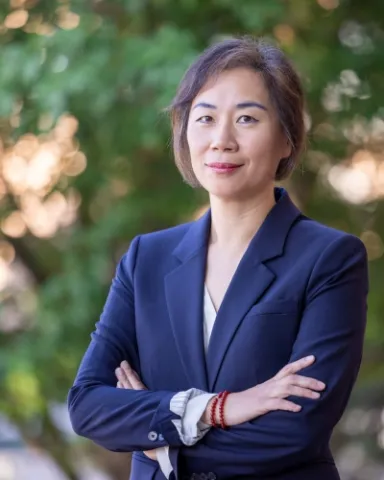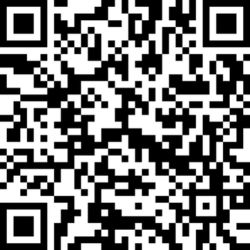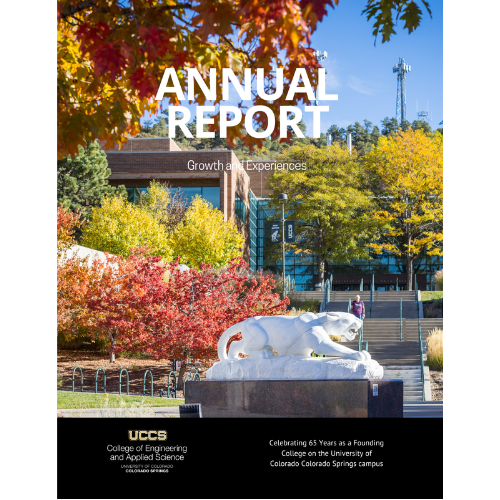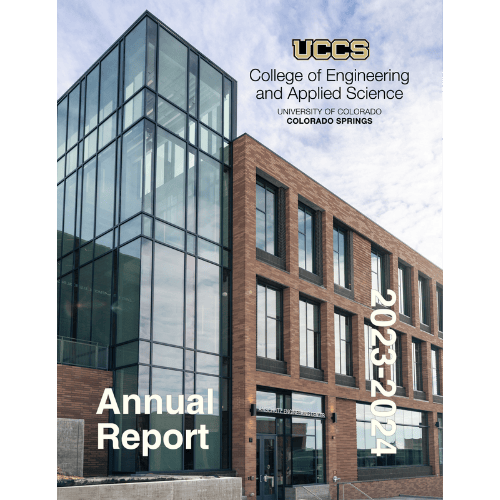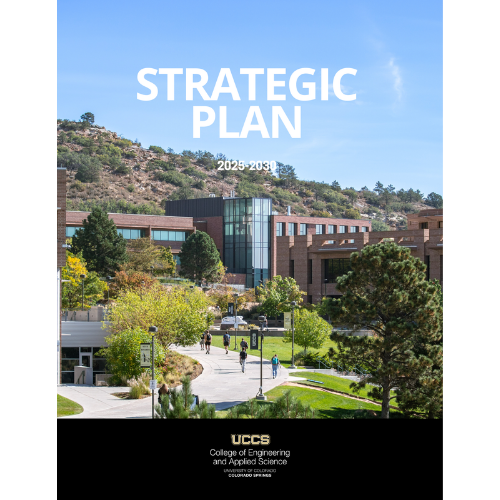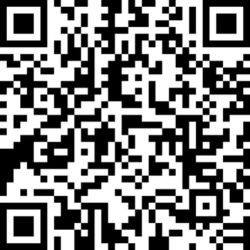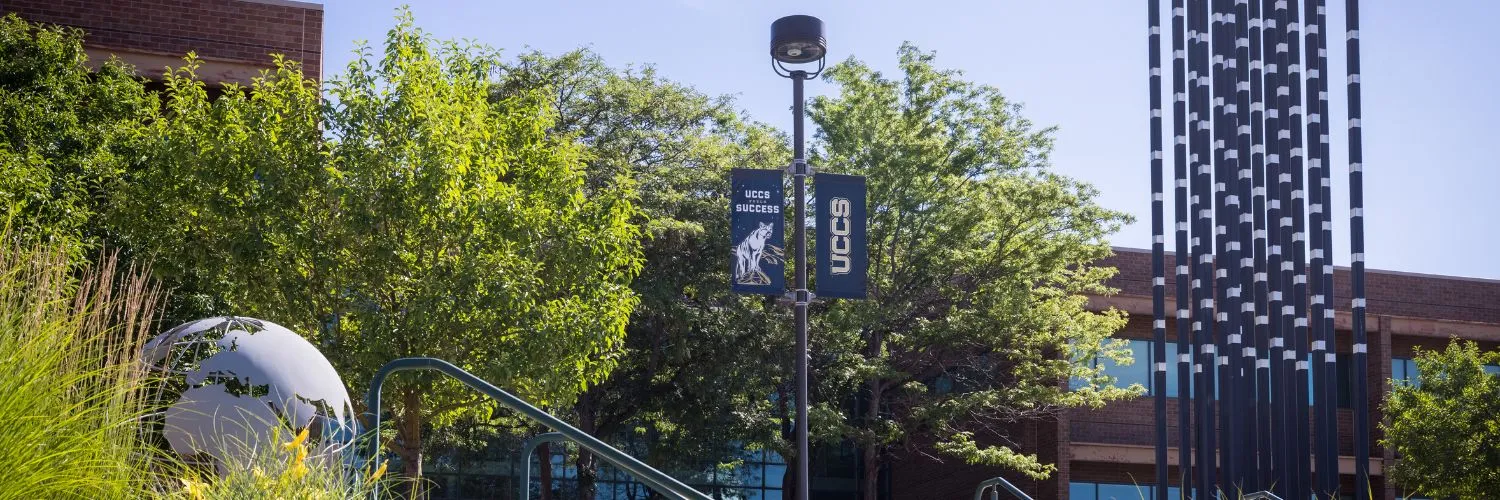
About the College
Academic Focus
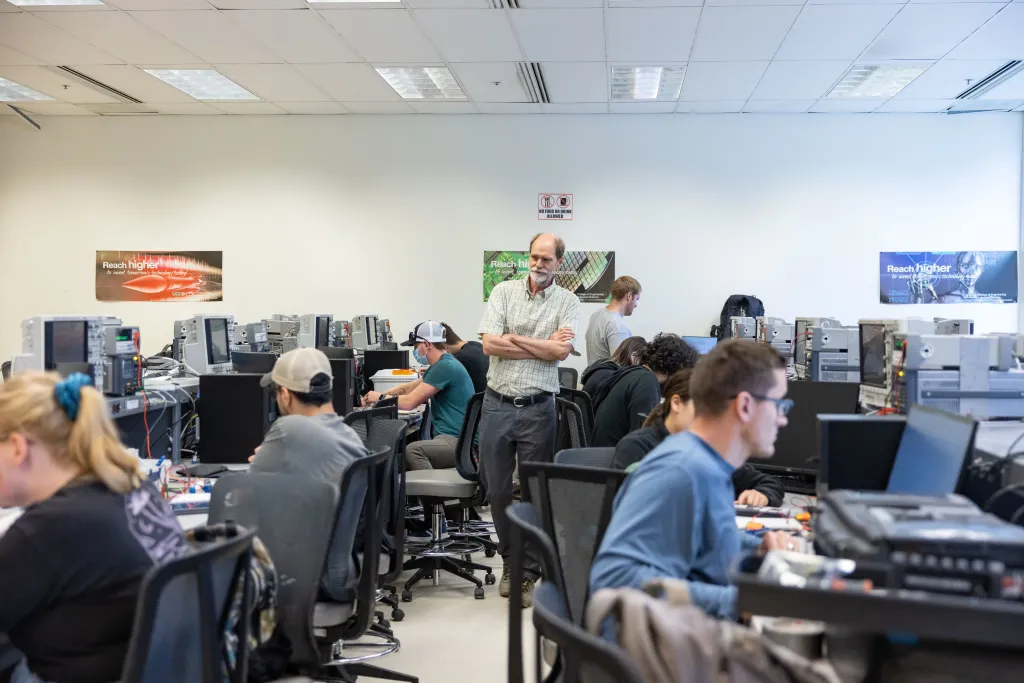
EAS provides a range of programs for students, including undergraduate, master's, and doctoral degrees, as well as various non-degree options. Within the college, there are three specialized departments:
- Computer Science
- Electrical & Computer Engineering
- Mechanical & Aerospace Engineering
Faculty & Research
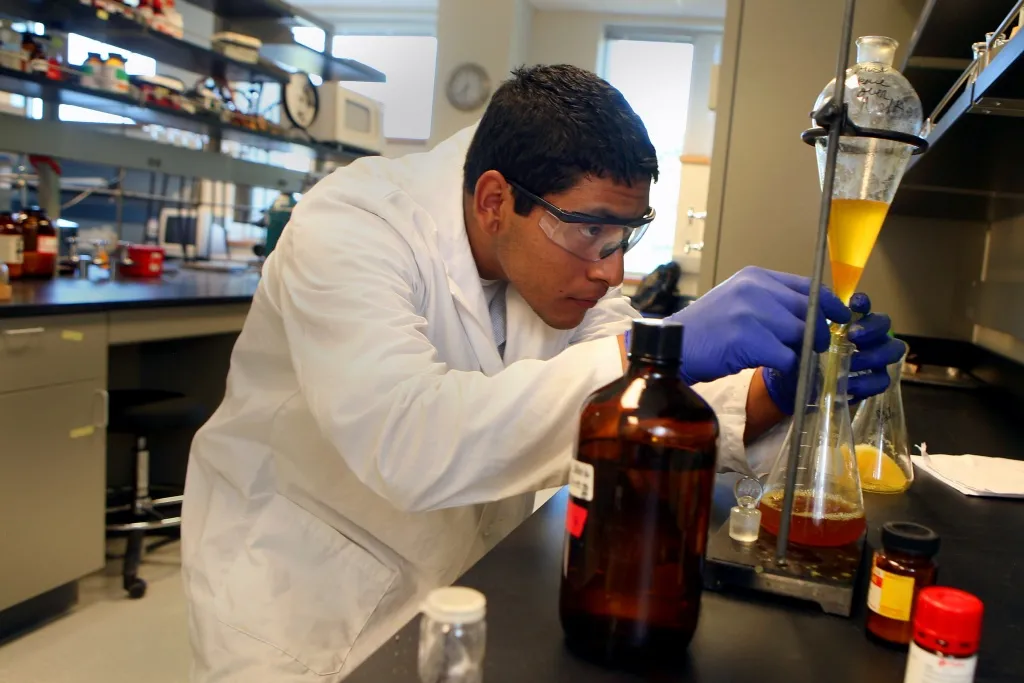
At UCCS, research is an essential part of the educational experience for students.
In the College of Engineering and Applied Science, our faculty members conduct research in various technical areas, such as Computer Science, Electrical & Computer Engineering, and Mechanical & Aerospace Engineering.
Through their dedication, our faculty secure millions of dollars in funding annually, creating unique educational and research opportunities for EAS students.
Mission Statement
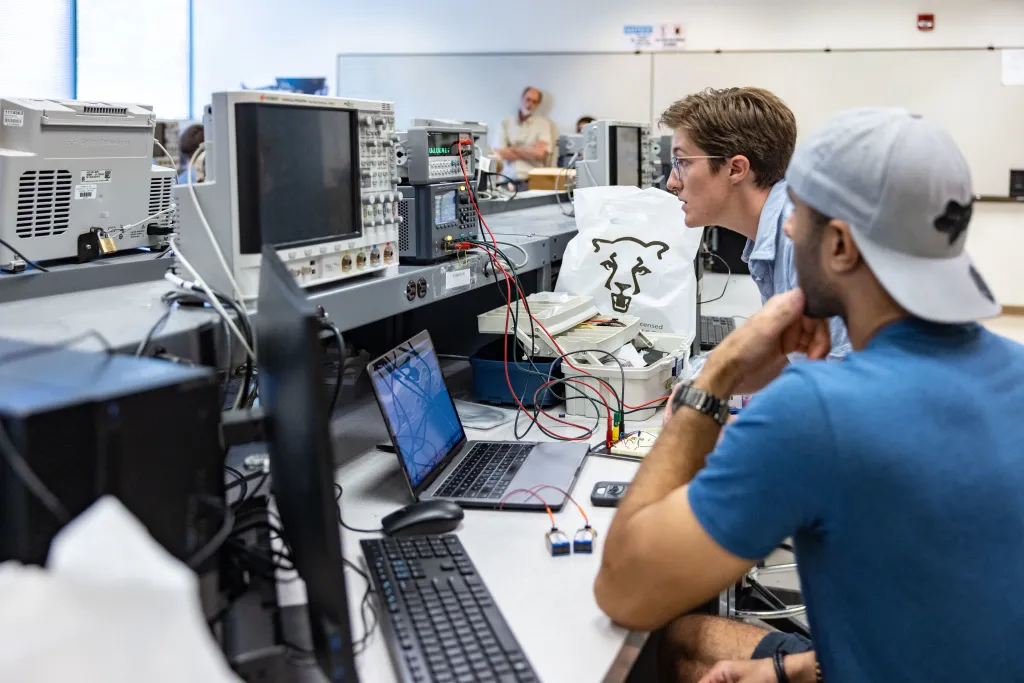
Our mission is to inspire and develop technological leaders in engineering and computer science through quality teaching and innovative research, creating an academically rigorous and enriching experience in a collaborative environment.
We advance and disseminate applied and theoretical research along with educating students in ethical service to diverse communities in Colorado, the nation, and the world.
Vision Statement
As a forward-thinking, collaborative community, we serve the people of Colorado and the global society through world-class research, innovative teaching, and the application of new knowledge. We develop diverse, technical leaders to challenge the present and create the future.
Our People
Our greatest strength in the college is our people. We will pursue an agenda to enable competitive salaries, a positive work environment, and increased diversity amongst our faculty.
EAS Initiative: Our People
Goal P1: Increase gender diversity amongst faculty ranks from 23% to at least 33% by 2030.
Strategy:
- Consider diversity while forming search committees
- Implicit bias training as part of the search committee charge
- Increase job posting visibility to female and minority groups
Goal P2: Increase salaries to the 50th percentile by discipline amongst R2 institutions (similar university or college size).
Strategy:
- Establish salary peer groups
- Establish 50th percentile per rank by discipline for faculty and staff
- Work towards increasing salaries (starting and existing) and start up packages gradually over 10 years
Goal P3: Ensure staff support commensurate with faculty size and student enrollment.
Strategy:
- Provide right sized staffing at college and departmental levels based on work load studies
- Provide cross training of staff
- Provide professional development opportunities for staff
Goal P4: Continuously improve teaching effectiveness.
Strategy:
- Provide training and development opportunities
- Provide mentoring opportunities for new faculty
- Share best practices among all college faculty
- Explore more comprehensive teaching evaluation tools
UCCS Strategy
- Learning Engagement and Belonging
- Financial Strength
- Deliberate Investment
Our Students
As a state university, it is our responsibility to ensure students have access to education as well as the tools necessary to be successful in their efforts to graduate from UCCS.
EAS Initiative: Our Students
Goal S1: Increase gender and racial diversity amongst our students to exceed local demographics by 2030.
Strategy:
- Target marketing to increase international student enrollment
- Increase recruiting efforts in diversely populated areas
- Enable opportunities for increased participation in K-12 STEM education initiatives
- Build diversity through scholarships
Goal S2: Increase 2nd to 3rd year retention rates.
Strategy:
- Identify reasons why students leave programs, create strategies based on this data
- Enhance the student experience, clubs, mentoring, advising
- Become a school of choice for higher performing high school students
- Create early intervention programs to help struggling students
Goal S3: Increase 4 and 6 year undergraduate graduation rates
Strategy:
- Identify and eliminate barriers to progressing through programs
- Better understand why students aren’t graduating sooner including why students take time off
Goal S4: Increase financial support for students
Strategy:
- Increase scholarship opportunities
- Provide more opportunities for student employment
- Explore other ways to offer tuition support – fellowship, department employment programs
UCCS Strategy
- Learning, Engagement and Belonging
- Retention and Graduation
- Financial Strength
- Deliberate Investment
- Partnerships and Outreach
Student Growth & New Academic Programs
Grow existing degrees and provide additional academic programs for students while satisfying technical workforce demands in the region.
EAS Initiative: Student Growth and New Academic Programs
Goal G1a: Responsibly grow our current undergraduate student population in existing programs by 3% per year.
Strategy:
- Increase recruiting efforts in partnership with admissions
- Establish clear pathways for community college students
- Targeted marketing
- Increase K-12 outreach
- Creation of tracks within degrees
Goal G1b: Responsibly grow our current Master’s student population in existing programs by 3% per year.
Strategy:
- Examine best practices used in Master’s programs
- Identify and eliminate barriers to completion
- Increase number and quality of Master’s applicants
Goal G2: Create two new in-person degree programs by 2030.
Strategy:
- Identify growing degree programs nationally
- Leverage faculty expertise/internal resources analysis
Goal G3: Create two new online and/or hybrid programs by 2030.
Strategy:
- Leverage new teaching modes in developing new programs
- Identify market for online/hybrid degrees
- Leverage faculty expertise
- Leverage professional expertise in SE Colorado
- Poll industry/Research in demand programs (state, region, etc.)
Goal G4: Create one new department by 2030.
Strategy:
- Evaluate need for new department
- Identify growing degree programs
- Leverage faculty expertise
UCCS Strategy
- Retention and Graduation
- Distinctive Programs
- Deliberate Investment
- Partnerships and Outreach
Research & Doctoral Programs
Add to the global body of knowledge in engineering and computer science by increasing research in the college and expanding doctoral programs.
EAS Initiative: Research and Doctoral Programs
Goal R1: Increase college yearly research expenditures from $65k/TTF/yr to $130k/TTF/yr by 2030.
Strategy:
- Celebrate individual, department and college successes
- Seek new grant opportunities and partnerships
- Encourage attendance at grant writing workshops
- Seek collaborations (internal and external)
Goal R2: Increase the number of students graduating with a PhD from 17/yr to 25/yr by 2030.
Strategy:
- Explore new international partnerships
- Increase recruitment with targeted marketing
- Better understand student progress through PhD programs
- Increase funding for PhD students
Goal R3: Increase research opportunities for undergraduate students.
Strategy:
- Explore potential for reviving scholar program for EAS students
- Undergraduate inclusion in grant writing
- Expand participation in NSF undergrad research experience
- Market undergraduate research opportunities
UCCS Strategy
- Research and Creative Excellence
- Financial Strength
- Partnerships and Outreach
Expand Our Facilities Base
Expand our facilities to accommodate existing needs, student growth, new programs, and a broadened research mission.
EAS Initiative: Expand our Facilities Base
Goal F1: Remodel the UCCS Cybersecurity Building to broaden research and increase student population in cybersecurity.
Strategy:
- Use EDA money and matching gifts to remodel the facility in phase 3 to expand cybersecurity efforts and solve crowding issues in the current EAS complex.
- Establish a program plan and raise money for phase 4
- Establish resident partnerships with government and industry in the Cybersecurity building to broaden student and faculty opportunities.
- Leverage state of the art learning spaces to attract students to cybersecurity
Goal F2: Create an Engineering Annex to accommodate student and program growth.
Strategy:
- Establish need for space by projected growth over the next 10 years
- Raise $8M in gifts with a match of $8M from the endowment
Goal F3: Modernize the Engineering building while solving safety and code issues.
Strategy:
- Seek $28M in state capital money for the project matched with $6M in gifts
UCCS Strategy
- Deliberate Investment
- Partnerships and Outreach
Community Partnerships
Strengthen and broaden partnerships with the community, industry, and government, as a vehicle to improve our programs, demonstrate relevancy, create opportunities for students and faculty, and connect academic programs to regional needs.
EAS Initiative: Community Partnerships
Goal C1: Increase alumni engagement.
Strategy:
- Market alumni successes
- Fundraising
- Improve connections to alumni
Goal C2: Increase community partnership investment in UCCS EAS.
Strategy:
- Broaden our Engineering Leadership Council from 48 to 60 companies
- Increase internship opportunities
- Increase industry sponsored research, mentoring, and speakers
- Increase involvement/exposure in senior projects
Goal C3: Increase UCCS EAS standing/reputation in community.
Strategy:
- Service initiatives for community impact
- Expand research footprint
- Increase number of on campus activities for public
UCCS Strategy
- Partnerships and Outreach
Annual Report: 2024-2025
Read the annual reports to find out about important college initiatives, current and new programs, awards and successes, featured people spotlights, and unique faculty and student research.
Annual Report: 2023-2024
Read the annual reports to find out about important college initiatives, current and new programs, awards and successes, featured people spotlights, and unique faculty and student research.
Strategic Plan: 2025-2030
Read the updated strategic plan, including yearly action steps and progress toward goals.
